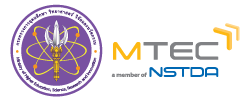
สรุปประเด็นปาฐกถาพิเศษในงานเปิดตัวภาคีเครือข่ายเทคโนโลยีกักเก็บพลังงานไทย (Thailand Energy Storage Technology Alliance, TESTA)
นับเป็นนิมิตหมายอันดีของภาคีเครือข่ายเทคโนโลยีกักเก็บพลังงานไทยที่ได้รับเกียรติจาก ศาสตราจารย์ ดร.เอ็ม สแตนลีย์ วิตติงแฮม (Prof.Dr. M. Stanley Whittingham) ผู้ได้รับรางวัลโนเบลสาขาเคมี ประจำปี ค.ศ. 2019 จากผลงานการพัฒนา “แบตเตอรี่ลิเทียมไอออน” ท่านได้แสดงปาฐกถาพิเศษในงานเปิดตัวภาคีเครือข่ายฯ โดยกล่าวถึงการค้นพบปรากฎการณ์การแทรกสอดของลิเทียม (Li intercalation) ในวัสดุไทเทเนียมซัลไฟด์ (LiTiS2) ซึ่งเป็นการค้นพบครั้งสำคัญในปี ค.ศ. 1973 ขณะที่ปฏิบัติการวิจัยอยู่ที่บริษัท ESSO (ซึ่งต่อมาเปลี่ยนชื่อเป็น EXXON) ทำให้ท่านเป็นหนึ่งในผู้ได้รับรางวัลโนเบลสาขาเคมี ในปี ค.ศ. 2019 การค้นพบนี้ได้นำมาประยุกต์ใช้กับวัสดุได้อย่างหลากหลายจนพัฒนามาเป็นแบตเตอรี่ลิเทียมไอออนในปัจจุบัน
ในปาฐกาถาฯ ท่านได้บรรยายถึงวิวัฒนาการของวัสดุสำหรับแบตเตอรี่ลิเทียมไอออนประเภทต่างๆ ตั้งแต่การค้นพบ LiTiS2 จนถึงการพัฒนาใช้สารประกอบประเภทลิเทียมออกไซด์ของโคบอลต์ (LiCoO2) ซึ่งเป็นวัสดุที่ใช้ในแบตเตอรี่ลิเทียมไอออนสำหรับโทรศัพท์มือถือและโน้ตบุ๊คคอมพิวเตอร์ เรื่อยมาจนถึงสารประกอบลิเทียมประเภทฟอสเฟต เช่น LiFePO4 โดยวิวัฒนาการของวัสดุทั้งกลุ่มประเภทออกไซด์ของโคบอลต์และฟอสเฟตได้เอื้อให้เกิดการใช้งานแบตเตอรี่อย่างกว้างขวางในยานยนต์ไฟฟ้าและระบบเครือข่ายไฟฟ้า
ปัจจุบันงานวิจัยทั่วโลกมีเป้าหมายในการเพิ่มค่าความจุ อายุการใช้งาน (นับเป็นจำนวนรอบและปี) รวมทั้งความเสถียรต่ออุณหภูมิของแบตเตอรี่ลิเทียมไอออน โดยประเด็นที่มีการศึกษาวิจัยอย่างต่อเนื่องคือ การลดปริมาณโคบอลต์ (Co) ในวัสดุขั้วบวกลง เนื่องจากโคบอลต์เป็นธาตุที่มีราคาสูง และไม่เป็นมิตรกับสิ่งแวดล้อม ในขณะที่ปริมาณนิกเกิล (Ni) เป็นตัวแปรสำคัญที่ส่งผลต่อความเสถียรและความจุของวัสดุขั้วบวก กล่าวโดยสรุป การพัฒนาแบตเตอรี่ลิเทียมไอออนโดยอาศัยหลักการแทรกสอดของลิเทียมที่วัสดุขั้วบวกยังเป็นแนวโน้มหลักและแบตเตอรี่ลิเทียมไอออนยังจะคงมีพัฒนาการอย่างต่อเนื่องไปอีก 5-10 ปี และสุดท้ายท่านได้กล่าวถึงการก่อตั้งภาคีเครือข่ายด้านระบบกักเก็บพลังงานของไทยว่าความร่วมมือกันเป็นสิ่งสำคัญและได้กล่าวอวยพรให้การดำเนินการของภาคีเครือข่ายเทคโนโลยีกักเก็บพลังงานไทยประสบความสำเร็จ
General Background
M. Stanley Whittingham
Chemistry Department
State University of New York at Binghamton
Binghamton, NY 13902, USA
(607) 777-4673
Stanwhit@binghamton.edu
Bio
M. Stanley Whittingham is a SUNY distinguished professor of chemistry and materials science and engineering at SUNY Binghamton and the 2019 Chemistry Nobel Laureate. He received his BA and D Phil degrees in chemistry from Oxford University, where he is an honorary Fellow of New College. He has been active in Li-batteries since 1971 when he won the Young Author Award of the Electrochemical Society for his work on the solid electrolyte beta-alumina. In 1972, he joined Exxon’s Corporate Research Laboratory and discovered the role of intercalation in battery reactions, which resulted in the first commercial lithium rechargeable batteries that were built by Exxon Enterprises. In 1988 he returned to academia at SUNY Binghamton to initiate a program in materials chemistry. He initiated graduate program in Materials Science and Engineering. He was awarded a JSPS Fellowship in the Physics Department of the University of Tokyo in 1993. From 1993-1999 he was Vice-Provost for Research. In 2004 he received the Battery Division Research Award. He is presently Director of the NECCES EFRC based at Binghamton. In 2012 he received the Yeager Award of the International Battery Association for his lifetime contributions to battery research; in 2015 he received the Lifetime Contributions to Battery Technology award from NAATBaaT, in 2017 the Senior Research Award from Solid State Ionics, and in 2018 was elected a member of the National Academy of Engineering and received the Turnbull Award from MRS. He is a Fellow of both the Electrochemical Society and the Materials Research Society. He is Vice-Chair, Board of Directors of the New York Battery and Energy Storage Technology Consortium (NYBEST).



